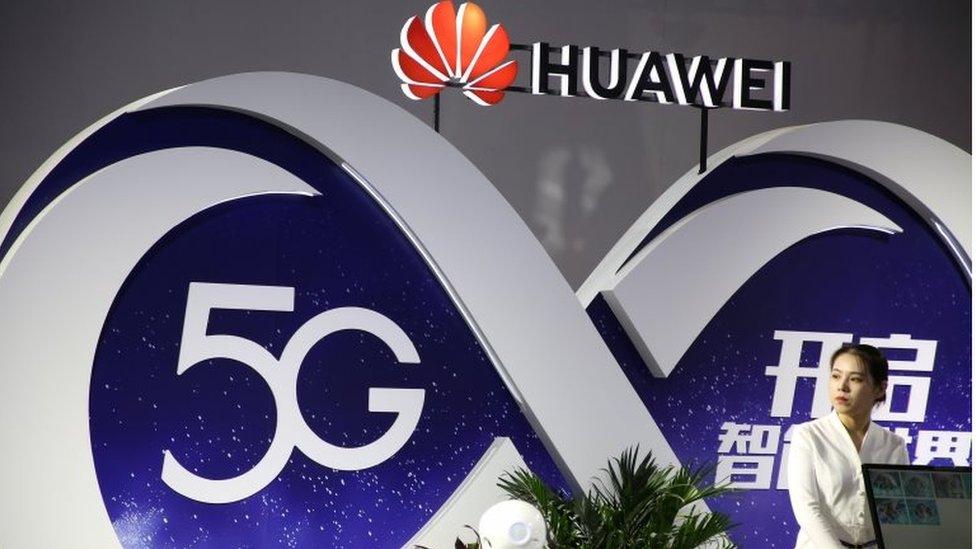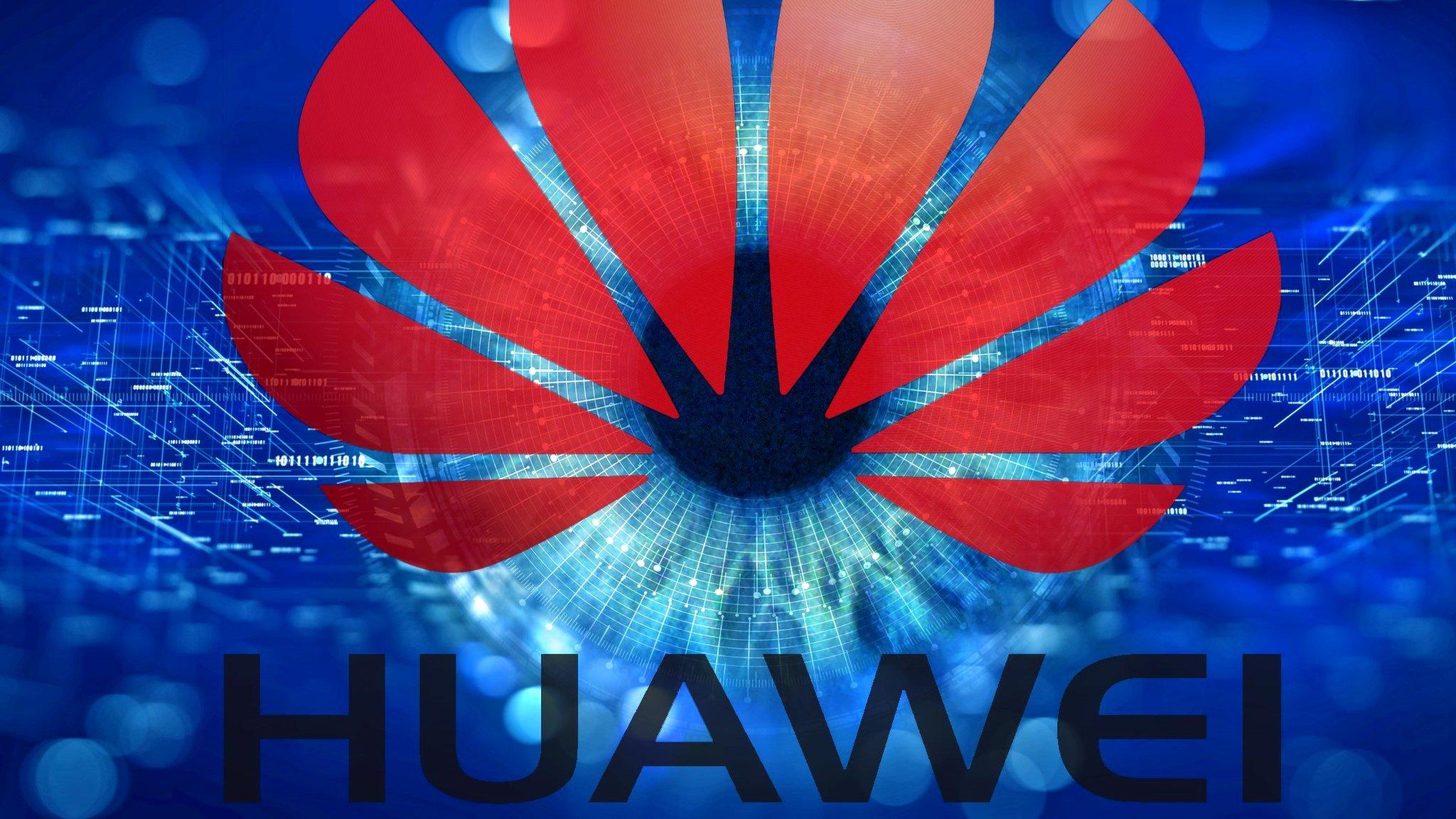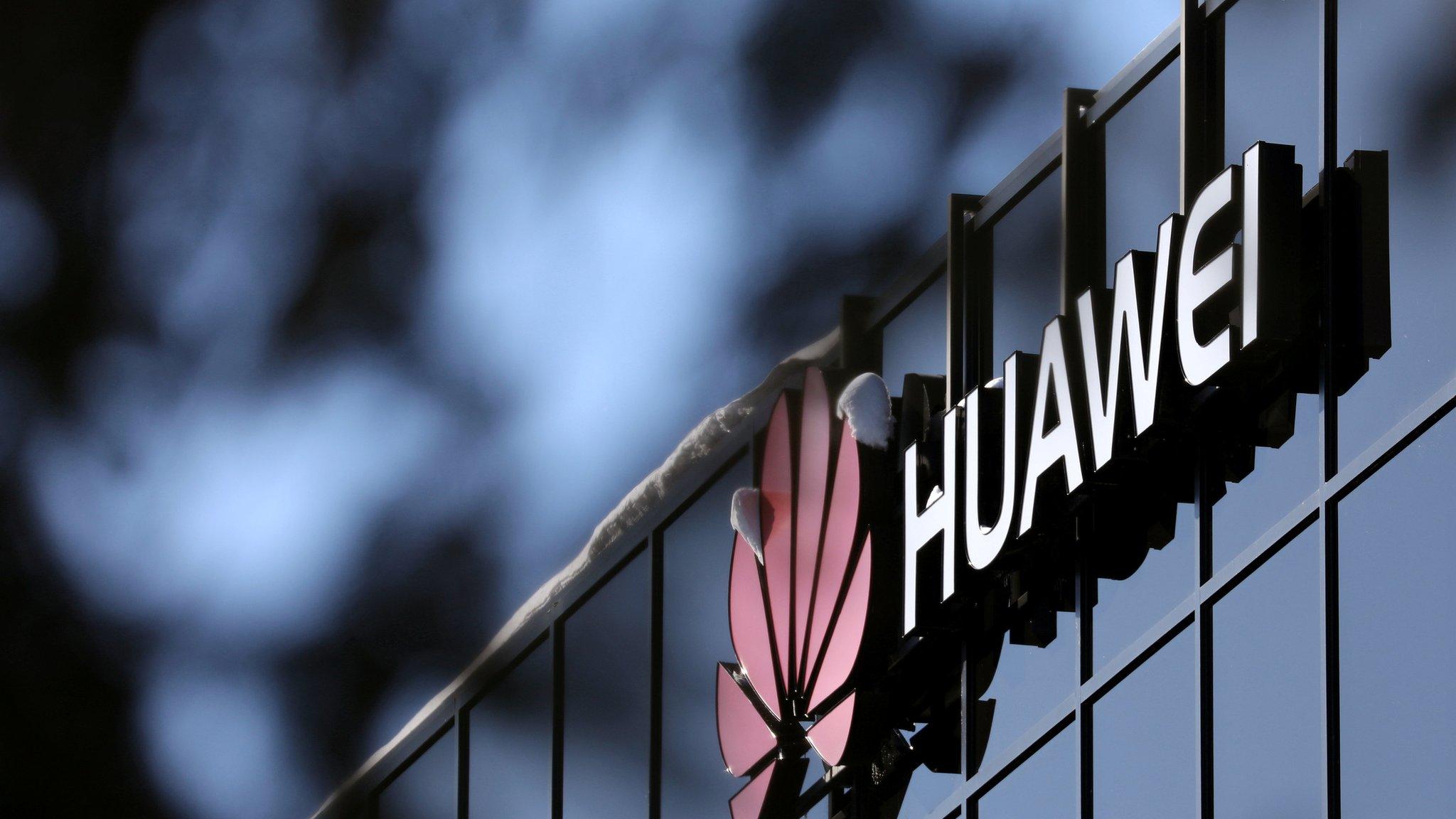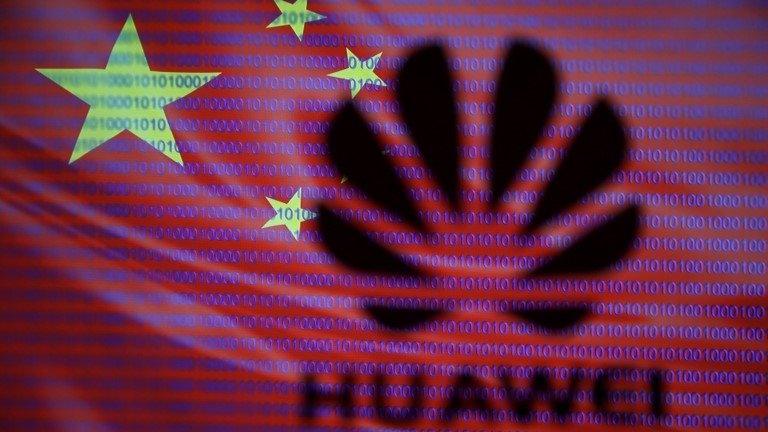Huawei 5G row: Ministers demand leak inquiry
- Published

Government ministers are calling for a "full and proper" investigation after high-level discussions about the UK using Huawei technology were leaked.
The government has approved the supply of equipment by the Chinese telecoms firm for the UK's new 5G data network - despite warnings of a security risk.
It is believed the decision was taken at a meeting of the government's National Security Council on Tuesday.
One minister said leaking from the council was "simply not acceptable".
The senior minister told BBC political editor Laura Kuenssberg that leaking the conversations was "extraordinary...the security council is the holy of holies".
There were "huge concerns" over "getting into bed" with the telecoms giant, the minister said.
What was the leak about?
Ministers were deciding whether or not to allow equipment from Huawei to be used to construct the new 5G data network - a decision that could have long-term consequences for national security.
There are fears that giving the Chinese company a key role could open the UK network to espionage.
But Huawei has denied there is any risk of espionage or sabotage, or that it is controlled by the Chinese government.
According to the Daily Telegraph, external, Huawei would be allowed to help build the "non-core" parts of the UK's 5G network, such as antennas.
Prime Minister Theresa May chaired the meeting of the National Security Council on Tuesday, where it is believed the decision was taken.
There has been no formal confirmation of Huawei's role in the 5G network and Number 10 said a final decision would be made at the end of spring.
Why does the leak matter?
The National Security Council is where senior ministers with key security roles meet - and their talks are supposed to be confidential.
BBC political editor Laura Kuenssberg said there was "real upset" that the discussions had leaked.
A senior minister said there had to be a "full and proper leak inquiry", with those responsible losing their jobs if necessary.
Conservative backbench MP Sir Nicholas Soames said the inquiry must be a criminal one and that the leak would "cause our friends and allies to wonder if we can be considered reliable - whoever is responsible should be dismissed [from] the Queen's service".
A source also told our political editor that four cabinet ministers had spoken against Huawei, fearing that security could be compromised.
Why are people worried about Huawei?
There have been warnings in the US since at least 2012 that equipment from Huawei poses a security threat.
Last year a UK government report said it could provide "only limited assurance" that the company's infrastructure did not pose a threat to national security.
Now the US wants its allies in the "Five Eyes" intelligence grouping - the UK, Canada, Australia and New Zealand - to exclude the company.
Australia last year blocked its networks from using Huawei's 5G gear.

Leak from security council is different order

The current cabinet was memorably described as the "worst in British political history" for leaking by the man who, ironically, is meant to be in charge of discipline itself - the chief whip.
But for a leak to come from the security council is quite a different order.
As many as six ministers are therefore likely to write to Number 10 complaining and calling for a "full and proper" inquiry into who divulged the information.

What is 5G?

5G promises great benefits but may come with higher security risks
5G is the next (fifth) generation of mobile internet connectivity, promising much faster data download and upload speeds, wider coverage and more stable connections.
Existing spectrum bands are becoming congested, leading to breakdowns - particularly when many people in one area are trying to access services at the same time.
5G is also much better at handling thousands of devices simultaneously, from phones to equipment sensors, video cameras to smart street lights.
Current 4G mobile networks can offer speeds of about 45mbps (megabits per second) on average. Experts say 5G - which is starting to be introduced in the UK this year - could achieve browsing and downloads up to 20 times faster.

- Published20 February 2019

- Published18 February 2019

- Published7 March 2019
